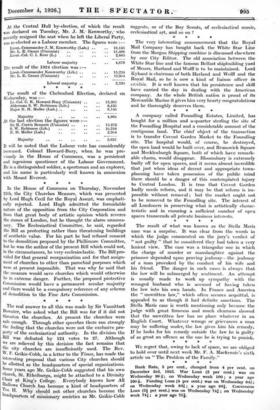The result of what was known as the Stella Maris
case was a surprise. It was clear from the words in which the judge commented on the jury's verdict of " not guilty " that he considered they had taken a very lenient view. The case was a triangular one in which the charge of murder or manslaughter against the prisoner depended upon proving jealousy—the jealousy of a man provoked by the conduct of his wife and his friend. The danger in such cases is always that the law will be submerged by , sentiment. An attempt is usually made to work up sympathy with the wronged husband who is accused of having taken the law into his own hands. In France and America the " unwritten law," which often secures acquittal, is appealed to as though it had definite sanctions. The Stella Maris case is worth mentioning only because the judge with great firmness and much clearness showed that the unwritten law has no place whatever in an English Court. Whatever wrongs or grievances a man may be suffering under, the law gives him his remedy. If he looks for his remedy outside the law he is guilty of as great an offence as the one he is trying to punish. * * * *






























































 Previous page
Previous page